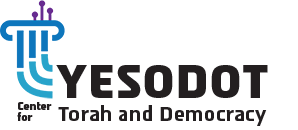-Tanya Regev
The sound of the words: “He is one of us” can be heard from the written word as well. These are words spoken with pride, like the words connoting an exceptional athlete, a brilliant researcher, a talented broadcaster or an acclaimed writer – people who belong to a minority group and represent it with honor. The mirror image of the words: “He is one of us” is the response to a male or female member of the group who strayed and sullied the reputation of the entire community. In that case, there is a very wide range of possible emotions: it could be shock, renunciation, blaming outsiders or searching for those responsible internally. One way or the other, the relationship of an individual with the group is complicated. Reality does not always look kindly on those who choose to act as individuals, distinct from the general context or to a community one of whose members behaves in a way that challenges accepted values.
The Ramban’s commentary on the words of Yaakov to Shimon and Levi, opens a window to an assessment of the relationship between the individual and the extended family. Towards the end of his life, Yaakov gathers his children to share parting words with them: “…what will befall you at the end of days” (Bereshit 49:1). To some of them, he is kind – with others, he settles scores. To Shimon and Levi, he says: “Shimon and Levi are brothers; weapons of villainy are their heritage. My self shall not come in their company; with their assembly may my glory not be associated; for in their anger they killed men, and with their will they hamstrung oxen. Cursed be their anger, as it is fierce, and their wrath, as it is harsh; I will divide them in Jacob, and I will disperse them in Israel” (Bereshit 49:5-7). Yaakov returns to the events in Shechem and reopens the incident of the revenge of Shimon and Levi on the men of the city. His words are harsh and conclude with a curse and a prophecy of fury.
At the beginning of his commentary on these verses, the Ramban rejects the possibility of justifying the actions of the brothers. “’Shimon and Levi are brothers’ – one could say they are brotherly, as they were infuriated by what happened to their sister. One might judge them favorably, because in their zealousness in their role as brothers they did what they did, in other words, they did not deserve a severe punishment, and the sin was not worthy of forgiveness, because it was evil. But the correct interpretation in my opinion of why Yaakov said: ‘Shimon and Levi are brothers’ – is that they were similar and tied to each other in counsel and deed.”
The Ramban does not accept the attempt to justify the actions of Shimon and Levi on the basis of deep feelings of solidarity with the group. Therefore, other than his suggested understanding of the term ‘brothers,’ he continues: “Yaakov was very angry at Shimon and Levi for killing the people of the city because they performed an act of villainy.” From here we learn that fraternal feelings, i.e. a connection with the community and a deep commitment to it, do not justify actions of injustice, nor mitigate their severity. A despicable murder is murder, even if it is rooted in lofty emotions – and it is incumbent upon the community to distinguish between motives and actions and to condemn what deserves condemnation. The Ramban goes a step further and explains why the heinous act of individuals radiates on their surroundings and besmirches the entire group: “And Yaakov was also irate, so they would not say that the brothers acted on his counsel and it would be a desecration of God for a prophet to perform an act of villainy or robbery, and that is why he said: ‘My self shall not come in their company’ -protesting that he was not in their company when they answered deceitfully and that he was not part of their assembly, because they came to the city and killed them; therefore he cursed their anger and wrath.”
These words of the Ramban which address the beginning of the metamorphosis of Yaakov’s family into a community and the transformation of his sons into tribes and a nation, are relevant and applicable today as well. Today, too, small groups tend to wash their dirty laundry in private, or not launder it at all, in order to provide ideological support to individuals who strayed or conversely – to absolve themselves of communal responsibility for offensive actions of “weeds” that grew in their flowerbed. The Ramban’s commentary addresses both the individual and the community: the individual must consider that he is identified with the collective and his decision to act one way or another will always be referred back to his group of origin. The community must not be tempted to justify the unacceptable through the use of ideological rationalizations, such as the sense of brotherhood, but rather must carefully distinguish between permitted and prohibited, without compromising, even for one moment, the values in which he believes and which he would like to bequeath to his children.


